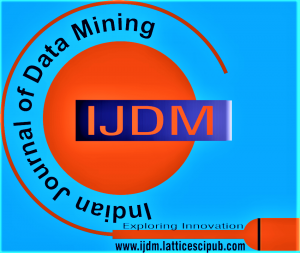![]()
Mars Explorer Experiments: Ideas from Data Mining Point of View
Mohammed Ali Mohammed1, Nadhim Azeez Sayel2, Noor Muneam Abbas3
1Dr. Mohammed Ali Mohammed, College of Business Informatics, University of Information Technology and Communications (UOITC), Baghdad, Iraq.
2Dr. Nadhim Azeez Sayel, College of Business Informatics, University of Information Technology and Communications (UOITC), Baghdad, Iraq.
3Noor Muneam Abbas, Department of Computer Science, University of Technology, Baghdad, Iraq.
Manuscript received on 18 April 2025 | First Revised Manuscript received on 26 April 2025 | Second Revised Manuscript received on 04 May 2025 | Manuscript Accepted on 15 May 2025 | Manuscript published on 30 May 2025 | PP: 1-7 | Volume-5 Issue-1 May 2025 | Retrieval Number: 100.1/ijdm.A164305010525 | DOI: 10.54105/ijdm.A1643.05010525
Open Access | Editorial and Publishing Policies | Cite | Zenodo | OJS | Indexing and Abstracting
© The Authors. Published by Lattice Science Publication (LSP). This is an open-access article under the CC-BY-NC-ND license (http://creativecommons.org/licenses/by-nc-nd/4.0/)
Abstract: In the context of the “Mars Explorer Experiments,” a set of autonomous agents (vehicles) must navigate an unknown, obstacle-filled terrain to locate and collect rock samples, with limited communication between agents and no prior detailed map of the planet. This paper explores the application of data mining techniques in the development of autonomous vehicle control architectures for Mars exploration, specifically focused on the task of collecting precious rock samples according to three types of agents (Cooperative Agents, Non-Cooperative Agents, Subsumption Architecture ) through describing the agent with the data mining point of view (problem statement in agent, solution using data mining algorithms, discussion problem and solution from data mining point of view). A significant portion of the paper discusses how data mining approaches such as clustering, reinforcement learning, anomaly detection, and pattern mining can be employed to improve agent coordination, exploration strategies, and real-time decision-making in dynamic and uncertain environments. Incorporating data mining algorithms into ‘Mars exploration experiments’ shows a hopeful way to boost the performance and decision-making abilities of autonomous agents on Mars. The paper shows that the data mining algorithms are not just beneficial but essential in developing intelligent, cooperative, and autonomous systems for Mars exploration vehicles.
Keywords: Mars Explorer, Data Mining Algorithm, Agent, Rational Agent.
Article of the Scope: Data Mining Algorithms
